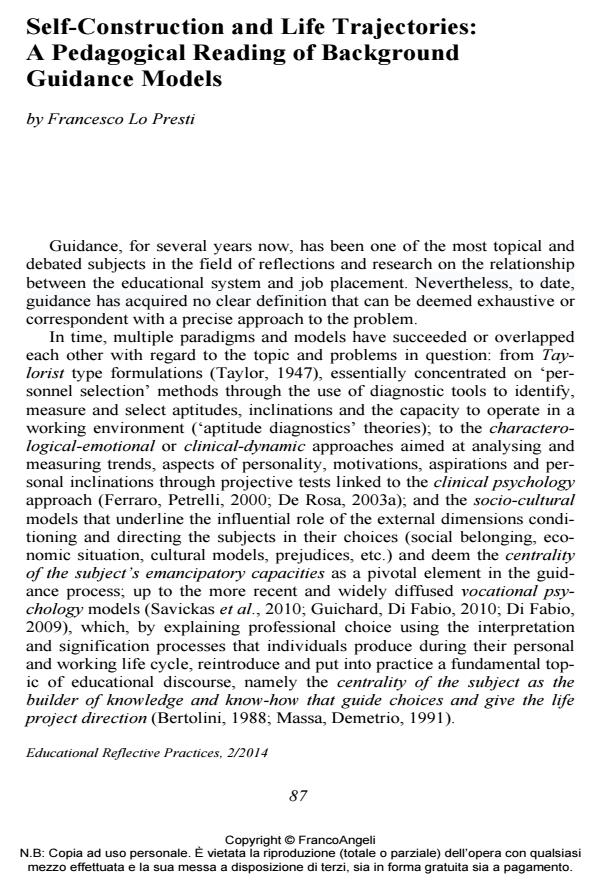Self-Construction and Life Trajectories: A Pedagogical Reading of Background Guidance Models
Journal title EDUCATIONAL REFLECTIVE PRACTICES
Author/s Francesco Lo Presti
Publishing Year 2015 Issue 2014/2
Language English Pages 12 P. 87-98 File size 110 KB
DOI 10.3280/ERP2014-002006
DOI is like a bar code for intellectual property: to have more infomation
click here
Below, you can see the article first page
If you want to buy this article in PDF format, you can do it, following the instructions to buy download credits

FrancoAngeli is member of Publishers International Linking Association, Inc (PILA), a not-for-profit association which run the CrossRef service enabling links to and from online scholarly content.
Starting by complexity, liquidity, fragmentation that, as highlighted in the literature (Sennett, 2008; 2012; Bauman, 2011; 2013), characterize the post-modern condition, underlines the need for the education system to define and propose formative strategies that, by capturing the transition from technical rationality to personal and professional reflexivity, are able to orient individuals in ability to plan the future, being guided by a wider awareness about the prospects, the systems and processes of meaning that compose their life trajectories. Through the pedagogical review of career construction theory (Savickas, 2005) and self-construction theory (Guichard, 2010a; 2010b), actually among the most influential in guidance and both ascribable to the paradigm of Life Designing, the article proposes a reading of guidance processes like processes of reflexive education focused on life trajectories, which try to define possible prospects and borders of this specific aim for research and intervention from an educational point of view
Francesco Lo Presti, Self-Construction and Life Trajectories: A Pedagogical Reading of Background Guidance Models in "EDUCATIONAL REFLECTIVE PRACTICES" 2/2014, pp 87-98, DOI: 10.3280/ERP2014-002006